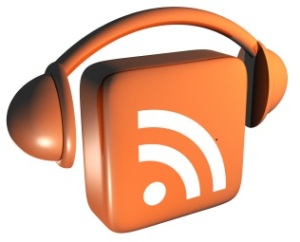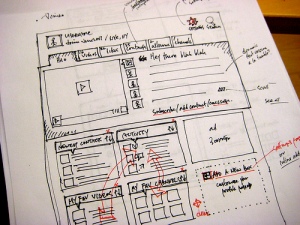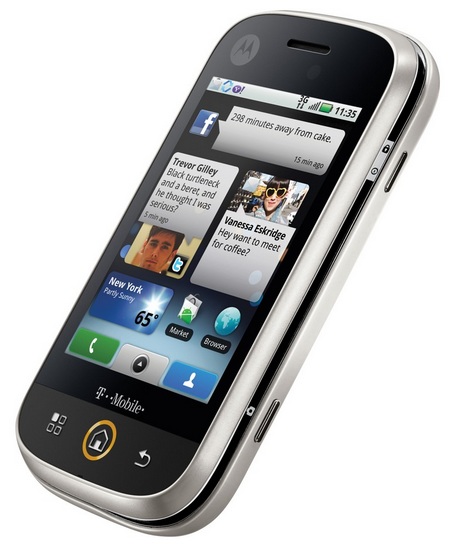 I have become a firm fan of podcasts over the last couple of years, and listen to a lot in the area of software and web development. So in the manner of blog posts that list things, here is my list of favourite podcasts (in no particular order).
I have become a firm fan of podcasts over the last couple of years, and listen to a lot in the area of software and web development. So in the manner of blog posts that list things, here is my list of favourite podcasts (in no particular order).
You will see that many of them are focused on User Experience (UX) or Design rather than being straight BA podcasts. This is because the BA podcasts I have tried have not been nearly as engaging, interesting, or thought-provoking as the UX/Design ones. Also there aren’t nearly as many of them. I find the UX side of web development really fascinating. The intersection between psychology and user interaction is such an evolving field, and I find that a lot of the concepts I learn from these podcasts are very applicable to my BA’s work and how I approach a project for a client. Anyway, enough waffle, here’s the list:
UIE Brain Sparks – Jared Spool
- SpoolCast – My favourite podcast. Jared Spool is a godfather of web usability and user research and he interviews various UX and Usability professionals.
- Userability – Jared and Robert Hoekman answer questions from listeners.
- Revealing Design Treasures from the Amazon. This is one of the best of the bunch, Jared gives a conference talk on the design secrets of Amazon. Genius, and funny.
I.A. Podcast – Jeff Parks
- Primarily about Information Architecture (IA), but a wide variety of guests from different backgrounds and different specialties and perspectives.
- See this episode on Agile and the User Experience.
- Again an IA focus, but very design centric also. The best part of this podcast series is they post all the talks and sessions from the IA Summit that happens every year, and there are some really fascinating speakers.
- Check out the key-note speaker Dan Roam from the 2010 IA Summit, I really enjoyed this one – http://boxesandarrows.com/view/ia-summit-10-dan.
Boagworld Web Design – Paul Boag & Marcus Lillington
- I may just like this because it is English and I get to top up my accent, but it is also very relaxed and engaging and I love the split between web news and interviews. It’s also funny.
The Big Web Show – Dan Benjamin and Jeffrey Zeldman
- They have very interesting guests, and it is live streamed. I think Dan Benjamin is a very natural presenter and has great questions, I listen to his other show also, The Pipeline (see below). The co-host, Jeffrey Zeldman, is not so natural, however he is a powerful presence in the industry as he started A List Apart and works for Happy Cog and often has poignant things to say, although he doesn’t always say it at the right time, and it can interrupt the flow of the conversation.
- An interview show typically with web entrpreneurs who are always really intelligent, well spoken, well read, and basically interesting and succesful people.
- Try out this show with Jeffrey Veen (who started Adaptive Path as we ll as a myriad of other successful ventures).
37 Signals Podcast – Jason Fried & David Heinemeier Hansson
- An awesome Chicago company responsible for products such as Basecamp. They are passionate about creating usable products, and have firm opinions on entrepreneurs and start-up web companies who actually have a business model and can make money. Dare to dream 🙂
- It’s not a podcast but check out the “Bootstrapped, Profitable, & Proud” series starting with the interview with the guys from Campaign Monitor
Think Vitamin – Keir Whitaker, Ryan Carson, Mike Kus
- I’ve only listened to a couple of these but I enjoyed them. They do get in to more codey speak occassionally, but they are also great designers.
You Look Nice Today – Adam Lisagor, Scott Simpson, Merlin Mann
- Just hilarious. Not web, or design, or in fact focused on anything at all. Three friends shooting the shit.
- Merlin Mann started 43 Folders which is one of the original productivity sites.
- Just because they’re awesome.
- The only BA focussed podcast that I still occasionally listen to, worth checking out.
Agile Toolkit – Bob Payne
- This looked really promising when I first found it, but after listening to a few, it always seemed like Bob was interviewing success stories for his Agile coaching, and the discussion was too specific to one company or situation. It was kind of like listening to a really long in-joke you would never get unless you were there at the time. However some of the new episodes look interesting so I may try it again.
dConstruct 2009 – Various
- A conference run every year by the Clearleft web design agency in the UK. They have posted all the talks from the 2009 conference as podcasts and they are really fascinating.
I hope you enjoy these as much as me. I’d love to hear your comments.
Cheers.


